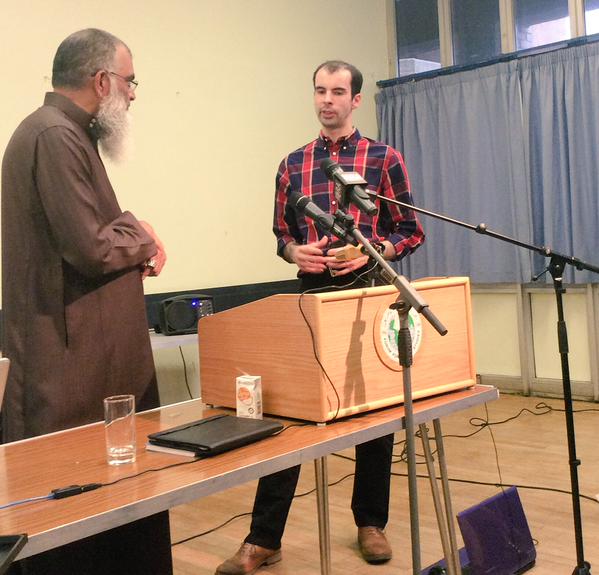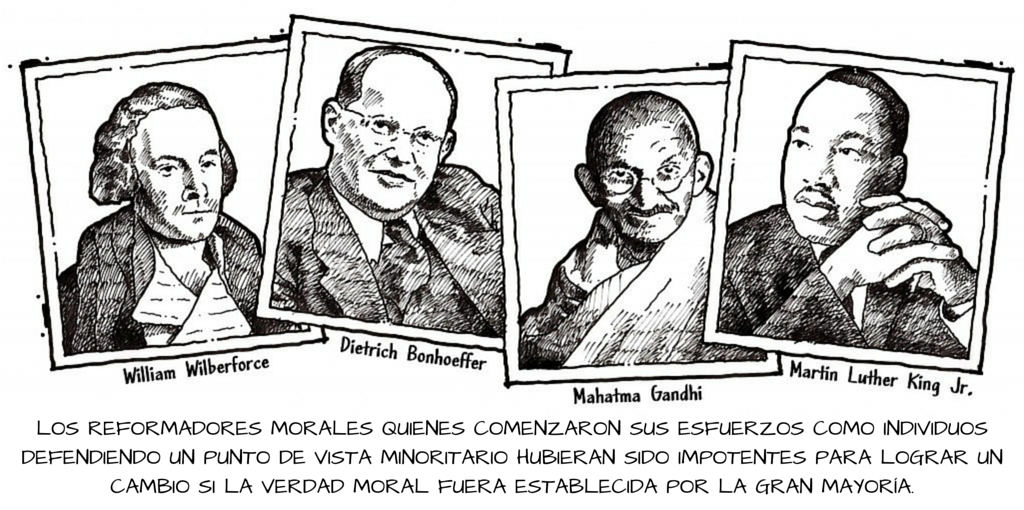 A few days ago, I posted a response to a review of my recent debate with Dr. Shabir Ally on the doctrine of the Trinity vs. Tawhid, written by Muslim blogger Ijaz Ahmad. Not long after my article appeared, so did Ijaz’s response. I noted previously that Ijaz appears to have developed a peculiar habit of mishearing or misreading things that I say and write. I make it my policy to be charitable whenever possible, and so I am not going to at this point allege any malintention on the part of Ijaz. What we are talking about, however, is not merely one or two instances of misrepresentation of my statements, views and arguments — it is a habit that plagues much of his writing. At the very least, this does seem to impugn his competence in basic reading comprehension skills (that is the only alternative I can envision to the charge of dishonesty — which I would rather not consider). Even more unfortunate is that Ijaz often continues to defend his incorrect readings even after he has received correction.
A few days ago, I posted a response to a review of my recent debate with Dr. Shabir Ally on the doctrine of the Trinity vs. Tawhid, written by Muslim blogger Ijaz Ahmad. Not long after my article appeared, so did Ijaz’s response. I noted previously that Ijaz appears to have developed a peculiar habit of mishearing or misreading things that I say and write. I make it my policy to be charitable whenever possible, and so I am not going to at this point allege any malintention on the part of Ijaz. What we are talking about, however, is not merely one or two instances of misrepresentation of my statements, views and arguments — it is a habit that plagues much of his writing. At the very least, this does seem to impugn his competence in basic reading comprehension skills (that is the only alternative I can envision to the charge of dishonesty — which I would rather not consider). Even more unfortunate is that Ijaz often continues to defend his incorrect readings even after he has received correction.
Yesterday, a debate broke out on Ijaz’s “Calling Christians” Facebook page when he posted a statement claiming that Modus Ponens is circular reasoning, and that, since I had used this argument form, I was guilty of circular reasoning. Note that this comment appeared after I had already corrected him on this matter in my previous blog. In his blog post responding to my article, he even went so far as to say,
“Unfortunately, all he had to do was think about what he argued, or at the very least, read what he wrote and he’d realise why it was circular. I’ll try to help him in this case. If X, then Y. X, therefore Y.This is the exact form his argument takes, and this is known as circular reasoning. Ergo, Jonathan does not know what circular reasoning is, and was unable to break down his argument into syllogistic form to understand what he was saying in logical terms.”
I and some others took Ijaz to task on Facebook for this ridiculous claim, but Ijaz was adamant that he was right, and that I clearly did not understand logic. Finally, after much tooth pulling, Ijaz admitted to being in error on this point — but only after he had attempted to settle the matter by blocking myself and his other critics from commenting on his page and deleting our comments. He has since deleted the entire thread from his Facebook page. After having consulted his “resident scholar” and being told that I was right and he was wrong, he went into damage control mode. The above-quoted statement from his blog has now been replaced with the following:
“I incorrectly referred to this form of argumentation as circular because I viewed the first premise as entailing itself, “If Tawheed is inconsistent”, which is self-reliant and thus circular. In other words it entailed itself, despite being in the form of modus ponens. After discussing with our resident scholar, I (Br. Ijaz) am indeed wrong. Although the first premise is indeed invalid (it does not logically follow if Tawheed could be inconsistent, that the Trinity is true), and needs to be qualified, the form is valid, but the first premise needs to be proven. So the argument itself is invalid, but the form correct. Apologies to Jonathan for this error.”
Well, that’s all well and good. Ijaz exercised some humility in conceding and correcting his mistake. But notice that in his correction he still manages to misrepresent me. Again. When did I ever state that it logically follows that “if Tawheed could be inconsistent, that the Trinity is true”? I didn’t. He also asserts that “the argument itself is invalid” — which is a technical inaccuracy (I think he means to claim it is unsound). On his Facebook page he also seemed to confuse a circular argument with Agrippa’s Trilemma, which is something quite different. As one Christian apologist put it to me, “Ijaz is a perfect example of someone who tries to sound logical by looking up logic terms and posting them in his responses without having the slightest clue how to use them.”
So what other blunders did Ijaz make in his response to me at his blog? The first two paragraphs were nothing more than a personal attack on yours truly. He starts by saying,
“After finding no one from the Christian community willing to perform a review of his debate with Dr. Shabir Ally, Jonathan McLatchie has finally taken the onus upon himself to “review” my review of their debate.”
Firstly, so far as I know, Ijaz is the only person to write a review of the debate in toto. I know of no other reviews, whether from Muslims or Christians. Second, how does Ijaz come to the conclusion that no one from the Christian community are “willing” to write a review? Perhaps they are just busy. By the same token I could also argue that no one from the Muslim community, besides Ijaz, has been “willing” to write a review of the debate. He goes on:
“It is unfortunate that Jonathan believes that I “misheard” or “misread” him, as this is a common excuse he uses when confronted with any criticism.”
That’s not quite true. Most of my critics read and comprehend what I say and write just fine. It is only a small number who seem to have this problem. He continues:
“Last month it was brought to the inter-faith community’s attention that Jonathan had described Muslim communities in France as a virus and a cancer to European society. If one were to compare his “review” of his debate, with the excuses used when confronted with his xenophobic statements, we’d quickly realise that Jonathan is being perpetually misunderstood by everyone. At first he claimed he never made such a statement, everyone had simply lied about him! Then, it was a statement he made, but everyone simply misunderstood him! Then, it was a statement he made, but it was not referring to Muslims but a cultural structure of extremism, everyone simply hadn’t given him enough time to explain himself!”
Wrong again. As I explained here, I did not make the statement attributed to me at all. Although my word-choice was unquestionably unfortunate, I neither described Muslim communities nor any individuals as “cancer” or a “virus”. Ijaz, as he always does, simply represented what I said in the most uncharitable way conceivable. As far as I recall, I never claimed that anyone had “lied” about me. In fact, I have correspondence with those responsible for propagating these claims wherein I specifically said that I did not think they were being deliberately deceitful, but that they had simply misunderstood what I said. Given that I have now clarified what I said several times and the claim nonetheless continues to be made, I am frankly starting to wonder. He goes on:
“Then, he posts a video in which Muslims who practise Islam are compared to ISIS terrorists and we’re not supposed to be offended by that. The 19,000 people who viewed that article and the 3500 people that watched that video, all seem to have “misheard” and “misunderstood” him.”
Wrong again. I defy anyone to show me where “Muslims who practice Islam are compared to ISIS terrorists” in any video I have shared. He then claims that,
“As one Christian apologist put it, “Jonathan is simply oblivious to any form of self criticism”.”
I am doubtful of this, since I often seek criticism from other apologists of my arguments, presentations and writing. But we can be charitable and give him the benefit of the doubt. He goes on:
“When I announced news that a Christian had accepted Islam following the debate between Dr. Shabir and Jonathan, Jonathan found it impossible that anyone would disagree with his remarks in that debate, such to the extent their faith would be questioned. I remarked to him at that point, that it doesn’t matter what you think of your own arguments, it is up to the audience to decide that. He disagreed, that just could not be a possibility, his remarks were without fault.”
Wrong again. I never said this at all. Nothing I have ever written could be construed as having said that. The relevant thread was a while ago though, and so we can put it down to a failure on Ijaz’s part to accurately recall the conversation. What I did remark is that I was highly surprised that any Christian’s faith would be rocked by Shabir’s presentation at that particular debate. I said nothing, so far as I recall, about my own remarks in the debate. Ijaz continues:
“Jonathan lives in a world, where everyone who disagrees with him, either perpetually misunderstands him, or they misread him, or they mishear him. It’s almost never the case that he has said something wrong, or that he has made a mistake, and this is exactly what we find in his “review” of my review.”
That’s not true either. Shabir Ally, for example, is quite capable of interacting with what I say. Most of my critics are.
“What sort of debater, reviews someone’s review? I mean, there’s the occasional post-debate rejoinder, but I’ve never seen anyone who considers themselves to be a professional, review their own debate. That’s what the community does, that’s not what the debaters themselves do. Jonathan though, does not like to be criticized, and so when my review criticized him, he could not contain himself.”
Well, Shabir Ally has reviewed some of his own debates for example (see this one for instance). William Lane Craig often does as well. So does James White. So Ijaz is simply wrong about this. My response to Ijaz, however, was not really a review of the debate per se, but a response specifically to criticisms of my opening presentation raised by Ijaz. Furthermore, the fact that I respond to criticism in no way entails that I do not like to be criticized.
Ijaz Ahmad accuses me of deception because I stated that he failed to mention any of Shabir’s weaknesses in his opening statement, such as his misuse of Greek grammar in relation to John 1:1 (documented here). Ijaz says that I am dishonest because he did mention John 1:1 in his review of the debate. Here’s what he wrote:
At this point, Dr. Shabir began to speak on the language used in regard to Jesus in the Gospel ascribed to John. John 1:1c is problematic as the attribution of total deity to the Word (later identified as Jesus), is uncertain due to Colwell’s rule. Grammarians do dispute about the definiteness of attributing deity to the Word in this verse due to the absence of a defining article which the original author purposely left out, this opened the wording and subsequent understanding of the verse to dispute. If the author wanted to ascribe total deity to the Word, then they would not have intentionally left out the defining article and thus, total deity cannot be ascribed to Jesus the Christ given the author’s grammatical intentions.
But this is precisely the point. Ijaz simply repeated this poor argument, despite the fact that it has been refuted ad nauseum.
Ijaz then quotes one of my critiques of his review:
The first point to note here is that I never stated that “the Bible is a wholly Trinitarian text”. It is my view that one can demonstrate a multiplicity of divine persons from both the Old and New Testaments, while the doctrine of the Trinity reaches its fullest expression in the New Testament where we read of the incarnation of the Son of God.
He accuses me again of not correctly representing what he said. He claims that “Yet, this is exactly what he said.” He then directed his readers to a timestamp on the debate video where I had stated that “the gospel of our Lord Jesus Christ is thoroughly Trinitarian.” Ijaz further remarks,
If Jonathan believes that the words “thoroughly” and “wholly”, are different, then he must consult a dictionary. They mean the same thing. He should also note, that in my very review, I quoted him as saying, “thoroughly”, so on that basis, where exactly does he believe this was something he did not say? Strangely enough, he proceeded to argue that Dr. Shabir did not pre-empt his appeal to the Bible (read as “scripture”), but he did. One of Dr. Shabir’s most important points was “the texts of scripture”. So while Jonathan may disagree, it doesn’t make him right, to the contrary it makes him seem desperate to create points of imaginative disagreement.
The issue of contention, however, is not over the meaning of “thoroughly” and “wholly”, but over the difference between “the gospel of our Lord Jesus Christ” and “the Bible”. Those are not the same thing. I never claimed that Shabir did not argue that the Trinity was contrary to the Old Testament. He did claim that. I happen to think he is wrong in claiming that, but Ijaz contends that Shabir in claiming this pre-empted this statement from my opening remarks, which is simply not the case.
He then claims that he did not in fact misrepresent my syllogism regarding Tawhid, even accusing me of being “deceitful”. He simply reasserted what he had said before, however, and failed to interact with my criticism. I did not say “If Tawhid is true, then it must be consistent.” I said, “If Tawhid is true, then it must be consistent with the Qur’an.”
Ijaz then back peddles with his claim from his review that I had made the argument about the eternality of the Qur’an in my opening statement. He said “In my review, I did not claim that he made this argument, I specifically said that he referred to it.”
Really, Ijaz?
Let’s have a look at his original review. Here is what he wrote:
“In attempting to do this, Jonathan disappointed me greatly. All he did was refer (timestamp in video, he says “Those who saw Shabir’s debate with Nabeel Qureishi would’ve been exposed to the problems with reconciling the eternality of the Qur’an with the doctrine of Tawhid.”) to the argument that Nabeel used regarding the Qur’an being the eternal word of Allah, yet physical and created. I was disappointed because this is an argument copied from Jay Smith, which Samuel Green tried to use on me in my debate with him, which Nabeel later picked up and tried to use against Dr. Shabir. The problem here is that Dr. Shabir already addressed this argument, and so have I. Jonathan merely repeated Nabeel’s poor argument. He did not try to revamp the argument, he did not add anything to the argument, he did not articulate it differently, he did not try to incorporate Dr. Shabir’s response to Nabeel into the argument. He quite literally just repeated the argument, which was already responded to. Naturally, I would expect, that if he did his homework and decided to use an argument which was already refuted, that he’d adjust the argument in some way. He didn’t do that. He presented nothing new. It was at that point I wondered why he even offered to debate the same topic if he was merely going to repeat the same points from the previous debate of the same topic by offering nothing new.”
I will leave it to readers to judge for themselves.
He then goes on to say that “Reading comprehension is not difficult and it should not be this difficult for Jonathan.” Oh the irony.
He then claimed that,
“He then spent an inordinate amount of time attempting to validate his bad argument that the Spirit (of God) is the same as Allah. Yet, he does not validate his bad argument, he merely repeats it without meaningfully responding to the criticism leveled against it.”
I will allow my readers to go back to my previous article and determine for themselves whether or not I interacted with the criticism.
Ijaz points out that the Qur’an uses “Spirit” in different contexts. I am quite aware of this, but in the texts that I cited, the Spirit is an agent that is breathed out by Allah in order to create life. This same Spirit is also identified as a personal, conscious, entity in Surah 19. Ijaz also contends that, if I am consistent, I would have to say that the angel of death is a fourth member of the Trinity. But this is simply mistaken — there is no verse in the Bible to my knowledge where we are told that God alone actively brings about death, whereas there are many verses in the Qur’an that emphasise that Allah alone is the sole life-giver, and that Allah has no partners. If Allah had a partner in the creation of life, what might that look like? If one divine God, comprised of at least two divine persons, creates, then this conundrum is resolved.
The next portion of his response is the part we have already addressed regarding his false charges of circular reasoning, which he later had to retract.
He then comments on Surah 3:55 and 61:14. He writes,
“Where does it specify what form the dominance would take? It doesn’t. Which is what I mentioned in my review of the debate. Where does it specify in the Qur’an what form the dominance takes? He chose not to answer this question, even though claiming this is what he was doing, rather he chose to mention that some Tafseer commentators agreed with him. Perhaps he should mention that those commentators presuppose that belief, with first believing that Paul’s true teachings, like Christ’s, became corrupted by later Christians. I fully believe he did not do his research on this topic and at this point, he’s repeating himself without addressing my criticisms.”
I am giving the historical interpretation of this text. Is Ijaz really prepared to say that ibn Kathir, al-Tabari, al-Qurturbi and ibn Ishaq all got it wrong, and that we had to all wait for Ijaz to show up in order to give us the correct meaning of the text? The meaning of the text that I gave seems to me to be clearly the most plausible and the most clear-reading of the texts. Ijaz’s explanation seems rather ad hoc. In any case, even if Ijaz is completely correct about this, he still needs to address my argument that the disciples (whom the Qur’an purports to have been Muslims) were quite clearly not subscribers to Islamic doctrines such as Tawhid.
Ijaz then quoted my statement that,
“Ijaz offered no comment on the third argument I presented in the debate, namely that the Injeel (i.e. the gospel) is Trinitarian and that the Injeel is affirmed by the Qur’an.”
He then replies,
“I actually did offer a comment on it, from my review, I said:
“If we were to identify his main arguments, they would be easily recognizable by anyone who is familiar with Islamic and Christian inter-faith discourse,namely that the Qur’an validates the New Testament, that the disciples believed Jesus was God and that the Bible is historically accurate. He did not present any new arguments, nor any new research, nor did he seek to upgrade any of the arguments he copied from other Christian debaters.””
He may have mentioned it, but he certainly offered no comment by way of response to the argument.
With a large grain of irony, Ijaz concludes:
In conclusion, Jonathan’s review of my review, is a bad attempt at trying to defend his poor arguments used in his debate with Dr. Shabir. At the most, he merely repeated himself, and at the worst he claimed he was misheard. Unfortunately for him, I was able to quote him word for word, and cite numerous places from my review in which I did address the concerns outlined in this review of his. All in all, this comes down to a lack of professionalism. If the Christian community is unwilling to do a review of his debate, and he is left to respond personally to everyone who criticizes him, this says a lot about the community’s perception of his role as a Christian apologist.
I have to say that I am rather disappointed with Ijaz’s review and his interaction with my criticisms. I was even more disappointed to see Ijaz’s original tagging of his blog post (which he subsequently changed). Still, here is the screen shot:

That’s right. He called me a “nazi” and a “racist”. I hope that, if Ijaz continues to further interact with my material, that he can exercise greater maturity in the future.













